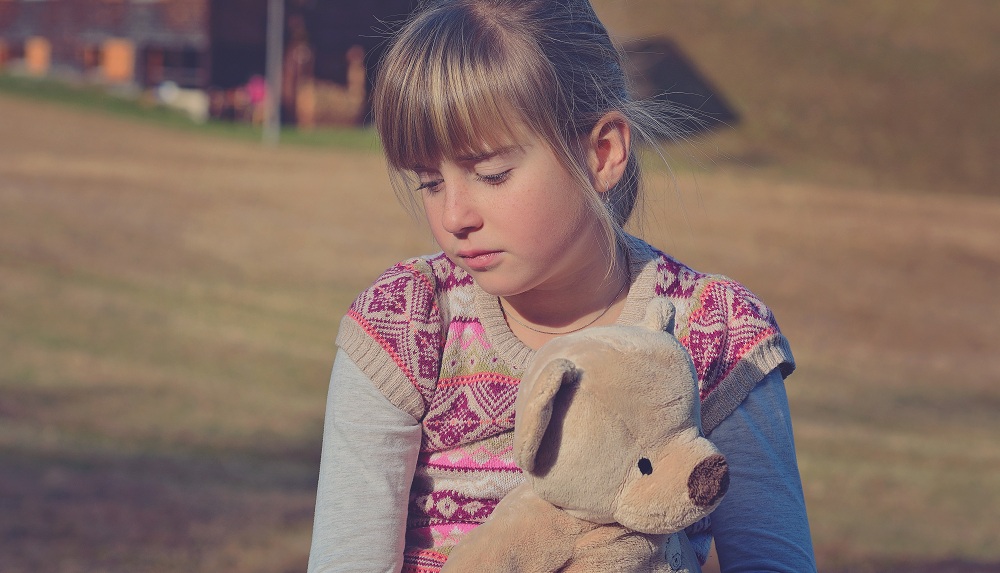It’s already a given that the things we experience as children may have an effect on us later into adulthood. In a positive scenario, we may have experienced an event or watch an adult work and become inspired to follow a certain career. My wife’s parents, for example, were lawyers, and she had a good relationship with both of them, so it was no surprise to anyone when she followed in their footsteps and became an attorney herself.
There are, however, negative scenarios where childhood experiences play out. According to some studies, children whose parents pressure their kids to excel and show disapproval when they fail to reach certain expectations are more likely to develop low self-esteem. And parents who yell at their kids for the slightest mistakes are actually teaching their children to become pretty good liars as they grow older, since children want to avoid negative reaction.
However, child development extends beyond the mental effects. Research from the Center for Disease Control and Prevention suggests that Adverse Childhood Experiences (ACE) are an underlying cause for the ten common causes of death due to physical diseases.
Developing Chronic Stress from Childhood
The research found that when children have unhappy childhoods, they begin to develop chronic stress and anxiety at a young age. Naturally, when you are stressed, your body is designed to take this as though you are in danger or in the presence of a threat. It’s why, when you’re stressed, you feel on edge: the body’s instinct is to prepare you to physically attack predators.

This is the basic human instinct for when there is a perceived threat, and your body returns to normal once the threat has been dealt with. But when you’re stressed because of a worry or fear that is intangible, your body becomes stressed and on-edge for longer periods of time.
This condition not only happens to adults; the same goes for children who are leading unhappy and stressful childhoods. The effects are mostly seen in abused and neglected children vulnerable to stressful situations, but it also applies to children who have led everyday childhoods but left in unhappy situations.
And when there is too much cortisol in their bodies, they can start to develop many health problems at a young age. This is not limited to mental health disorders such as anxiety, depression, and memory and concentration impairment, but also chronic headaches and digestive problems. They may also develop significant weight gain and develop heart disease.
Growing Up with Stress

Dependency on these could lead to a wider array of diseases. Tobacco abuse could lead to lung cancer and other respiratory illnesses. Constant alcohol intake could impair one’s mental state and eventually cause liver damage. Drug abuse has led to mental deterioration and crimes against the law. This does not include the stress-induced diseases they have developed from childhood.
Other Stress Effects
Children may also grow up developing serious illnesses from stress. For one, the constant cortisol in their blood may make it harder to breathe. Stress can actually trigger asthma attacks, hyperventilation, and panic attacks. More than a pulmonologist, children may need to see a psychologist to help them with their breathing problems.
When the cortisol is released, the liver produces more glucose, which you can use to produce more energy. Because this is a basic instinct used for predators and physical threats, what the body is supposed to do is use that extra energy for fight or flight. But when you don’t use up that glucose, it becomes more sugar in your body, which could lead to type 2 diabetes, obesity, and high sugar levels.
As mentioned earlier, cortisol affects body functions unnecessary to the fight or flight functions. One of these is the reproductive system. Male children who grow into adults can have affected testosterone production, sperm defects, and erectile disfunction. It may be difficult for these adults to partake in sex, let alone reproduce. Women, on the other hand, may develop irregular or painful menstrual cycles. Due to the hormones in the body becoming imbalanced, stressed female children may develop menopause earlier in life.
Treatment

Even before it escalates to a point of psychiatric help, parents can do a lot simply by listening to their children and validating their concerns. Children are people too, and they need to be shown the same amount of respect you would expect from other people. Children who feel heard and acknowledged are less likely to feel stressed, as this has a huge positive effect on children’s mood.
If handled at a young age, children can have a truly happy childhood, preventing their stress instincts from taking over and slowly developing into a chronic habit that causes them many diseases later in life. So, avoid yelling at your children for the slightest possible reason, help them grow without keeping them on-edge, and be a parent that’s always willing to listen to their children. Doing so not only makes them happier, but it also makes them healthier adults later in life.
